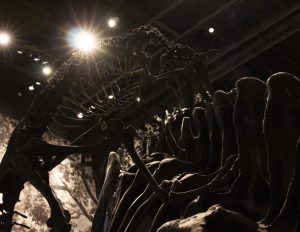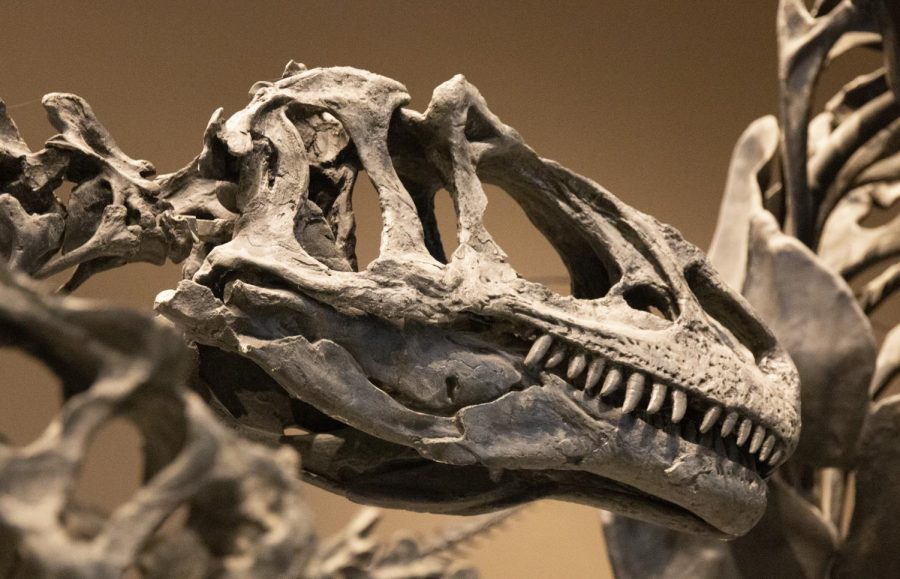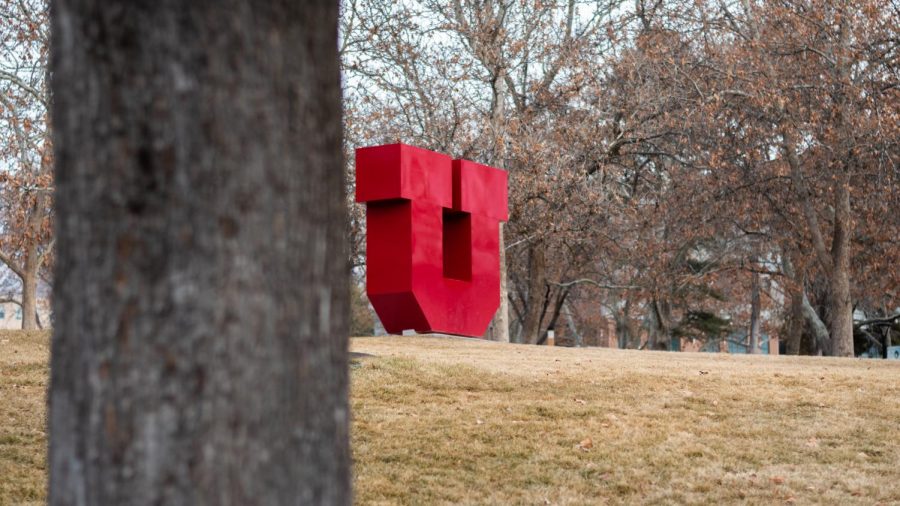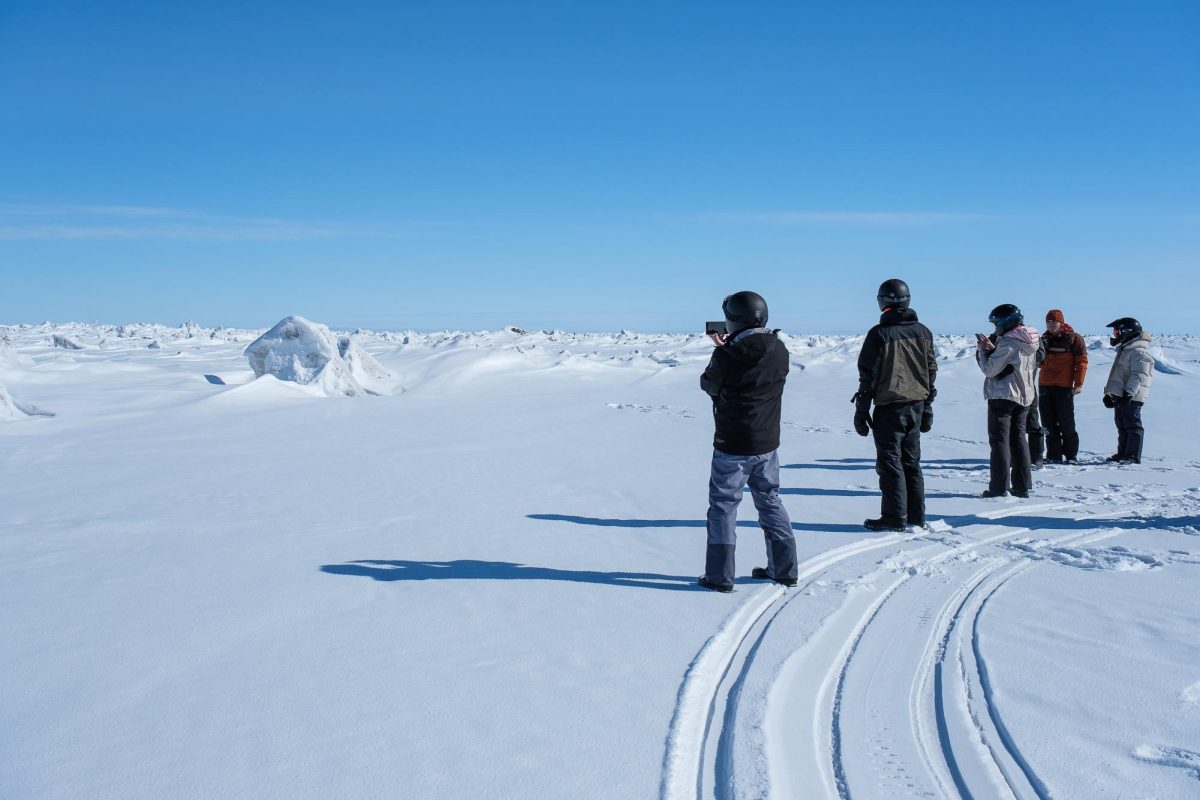Starr: The legislature should revisit and pass the Utahraptor State Park bill next session
Dinosaur fossils at the Natural History Museum of Utah. (Photo by Hailey Danielson | The Daily Utah Chronicle)
April 22, 2020
Utah’s “Mighty Five” national parks bring in millions of visitors each year, but state parks are just as important as national parks — even though they fly under many tourists’ radars. State parks serve a wider purpose than allowing people to water ski and speed away in off-highway vehicles. The state park system should be appreciated, and it’s important to continue expanding it.
Utah’s state park system conserves and manages 44 parks throughout the state. This legislative session, Rep. Steve Eliason sponsored a bill to add a popular area to the state parks list — Dalton Wells Quarry. Located in Grand County, the quarry is a hot spot for outdoor enthusiasts who can’t get enough red rock and a resting place for countless remains of the much-loved beasts of the past — dinosaurs. The very first Utahraptor fossil was found in Dalton Wells Quarry, and under Rep. Eliason’s bill, $10 million would be granted to the Department of Natural Resources to preserve the area and create Utahraptor State Park.
The bill passed through its first hurdle in the legislative process, receiving unanimous support in the House Political Subdivisions Committee and passing the House at the end of February — but it got stuck in the Senate, whose Natural Resources, Agriculture and Environment Committee did not pass the motion to recommend the bill.
That doesn’t mean Utahraptor State Park is dead, though. The legislature can always revisit the bill next year — and they should. While the appropriation is a sizable request, the legislature has a responsibility to protect this unique area. Utah should prioritize the protection of our past and inspire visitors.

A Safeguard for History
The creation of Utahraptor State Park would help curtail the negative impacts of unregulated visitation to the area. Dalton Wells deserves and needs an effective management plan from our state parks system, which operates under the Division of Parks and Recreation.
Protecting fossil records is critical because studying the past sometimes allows us to better adjust for the future. Fossils inspire our upcoming paleontologists, geologists and climatologists, and understanding preceding species and ecosystems may give us important insights on how to advance as humans. That means the protection of this earth’s unique history should be a top priority for land management agencies and local government. Creating Utahraptor State Park is an important part of that mission since it would ensure that this one-of-a-kind site, filled with impressive deposits of dinosaur bones, will be better taken care of.
The bones of 30 dinosaur species found nowhere else in North America are worth protecting, and a state park is the perfect way to execute the proper management the area deserves. State Paleontologist Jim Kirkland describes Dalton Wells as a “gold mine of new dinosaurs.” Right now the area is heavily trafficked, and because it is essentially unregulated, it becomes a free-for-all for vandals and “curious diggers who scratch the surface for bones,” according to Kirkland. The park’s plan should emphasize protection, as well as recreation, though that balance may be difficult to find.
If the bill is revived and passes next year, it will be equally important for the park’s future management plan to include an aspect of management that would bring attention to and inform visitors about the Moab Isolation Center, located in Dalton Wells, which was used during World War II as a Japanese internment camp. It would be appalling to wipe away that important (though horrific) history in the process of making Utahraptor State Park. This shameful part of history should be exposed and better understood today. The Division of Parks and Recreation has an opportunity to bring this dark part of history into the light.
The legislature should prioritize this appropriation and bill next session, though it will probably be another challenging year for the budget. There are few places on this earth with the kind of wealth of history that is found in Dalton Wells. It is strikingly apparent that unregulated tourism and visitation is not serving the area well. Grand County would see great benefits from more structured management of the quarry, and so would visitors.








